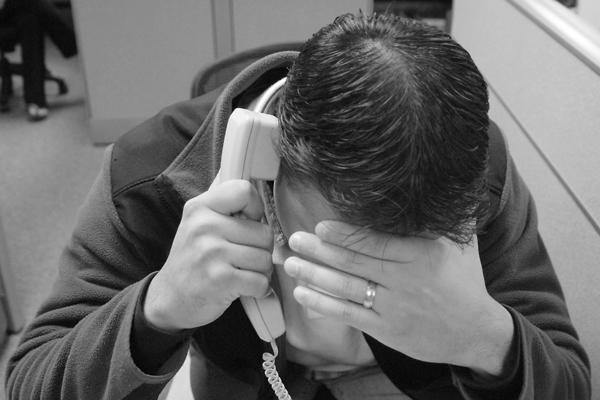In case you haven't already seen it, a pretty scary statistic was released earlier this week:
1 in 3 Americans have debt…in collections.
More specifically, 35% of Americans have debt in collections. That means they not only have debt, but they have debt that they are unlikely to be able to pay off.
Generally, my first reaction to scary statistics like this is to want to avoid them. After all, what are we supposed to do with another piece of bad news?
Well, that's the question, isn't it? Anyone who doesn't have debt in collections can breathe with a sigh of relief and move on with their day. Or, they can participate in the dialogue. Why do so many people face debt that has gone to collections? And what can we do about it? And if you are one of this 35% who has debt in collections, how can you recover your finances?
Look around, if it's not you, it's someone you know. So let's get talking about fixing this problem so everyone can face a better financial future.
The Statistics: 35% of Americans Have Debt in Collections
First of all, let's talk about the problem and how long it's been going on. According to Time, while credit card debt as a whole has been on a decline, the percentage of Americans who have debt in collections has remained about the same. What's worse, the majority of the problem is happening in specific parts of the country:
"The share of Americans in collections has remained relatively constant, even as the country as a whole has whittled down the size of its credit card debt since the official end of the Great Recession in the middle of 2009…
The delinquent debt is overwhelmingly concentrated in Southern and Western states. Texas cities have a large share of their populations being reported to collection agencies: Dallas (44.3 percent); El Paso (44.4 percent), Houston (43.7 percent), McAllen (51.7 percent) and San Antonio (44.5 percent)."
Why are some parts of the country facing economic hardship while others aren't? There are many reasons this can happen, but a lagging economy in certain regions doesn't help as that can lead to fewer opportunities and lower wages. While these areas may tout a lower price of living, that hardly matters if the residents aren't able to find work or work that pays well enough to cover even the basic costs of living.
How to Restore Your Finances – Before, During, and After Collections
There are so many ways to go into debt, some that can be spotted ahead of time and others that sneak up on you seemingly out of nowhere. Let's talk about how to handle debt no matter where you are in your payoff process:
Before Collections
If you're carrying a debt load but aren't delinquent, then you're at a critical stage. If your monthly payments are already hard to handle, one emergency could tip the scale against you and put you into collections. Here's how you can prevent that from happening:
- Stop using credit immediately
- Allocate a small portion of your monthly income to an emergency fund – even if you have to find a way to earn extra income on the side to do it
- Negotiate with your lenders to lower your interest rates so your minimum payments will go down and you can apply more money to principal balance if you pay over the minimum
- Create a debt payoff plan that you can stick to
These steps will help you stay current and, hopefully, get ahead on your debt payoff so collections won't be something you need to worry about.
During Collections
If you already know your debt is in collections, or recently found out, then you still have time to rectify the situation. Here's what you should do:
- When a debt collector calls you for the first time, validate that the debt is yours and that the collector is legitimate before you go any further (there are many scams around debt collections)
- If the debt is yours, negotiate with the collectors. They'll probably try to demand more than you can handle, but if they know you truly intend to repay it, they'll work with you
- If you have other accounts that are on the cusp of delinquency, negotiate with your lenders – many have hardship programs that can help those who are struggling to pay each month
Remember, above all else, that you always have the power to turn the situation around. The road out of collections isn't an easy one, but if you truly want to fix the problem then they'll work with you. You don't need to pay a company to help you find debt relief. Negotiate with your lenders to settle your debt for an amount you can afford or start a repayment plan so you can get back on the path to financial health.
After Collections
If you've been in collections before but aren't now, then it's imperative that you evaluate what caused the situation so you can prevent it from happening again. Whether it was poor spending, not earning enough income, or an emergency that caused you to go delinquent, you can take charge to stay on a positive financial track.
The best ways to stay financially healthy are to maintain a budget, always be looking for ways to earn income on the side if your career path doesn't pay enough for you to get ahead, and to have an emergency fund you can rely on just in case. These preparations will make all the difference so you never have to go into collections again.
Shannon McNay is the Community and Customer Support Manager at ReadyForZero, a website that helps people get out of debt faster on their own. Shannon focuses her writing on the ways our lives are impacted by our finances and vice versa - including finances in your relationship, finances in your career, and how to overcome the mental barriers to paying off debt. You can follow @ReadyForZero and @shannonmcnay on Twitter.












